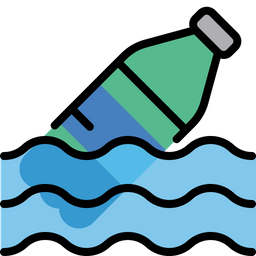
Plastic Pollution
The build up of plastic on the planet.
Plastics are a magical material. They help us package medical equipment to keep it clean and safe, bottle up water to take to places that don’t have access to water, make safety equipment like bike helmets and the list goes on! But the problem is that plastic’s wonderful properties like being weather resistant, strong, and durable, also make plastic our worst enemy! When we are done using plastics, they stay around on the Earth for hundreds of years (approximately 450 years!), causing harm to humans and nature.
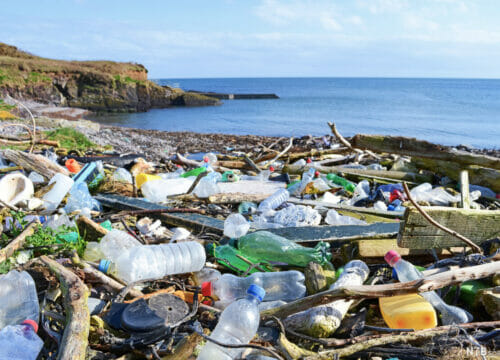
What is the plastic problem?
Plastics have allowed humans to do so many amazing things, so we keep producing more and more of them! We have developed a throwaway culture whereby plastic products are designed to be used for a short period of time and then thrown away.
Think about a plastic water bottle for example, you might buy one while you are out and about, guzzle the water and then throw it into a public bin on the streets. Within the next day or so, the wonderful binmen and binwomen from the city council will come and collect all the rubbish and take it to landfill, but if they don’t happen to get there quick enough the bin might overflow and the rubbish might get blown away.
Did you know that 500 billion plastic bottles are thrown away each year? This means that there are 66 times as many bottles as there are humans on the planet.
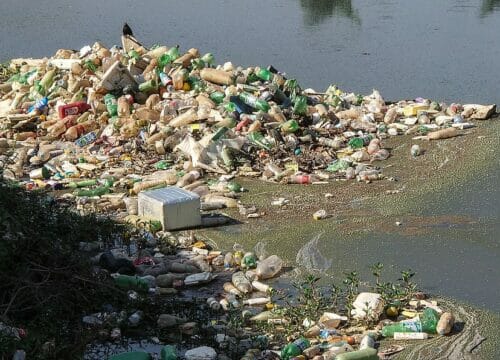
What are the dangers of plastic pollution?
When rubbish gets blown away it ends up in creeks and rivers, and eventually the ocean where it harms sea animals and humans alike. In fact, about 8 million tonnes of plastic enter the ocean every year, that’s the weight of 2 million elephants! Sometimes fish get trapped in the plastic, other times they confuse plastic for food and eat it. When fish eat plastics, it blocks their stomach, and they cannot eat real food. If you eat fish, you are probably eating small amounts of microplastic too!
But perhaps lesser known are the effects of landfill on the environment. As rubbish decomposes it releases greenhouse gases such as methane which contribute to global warming. They also release harmful chemicals that can get into the soil and water making humans and animals sick.
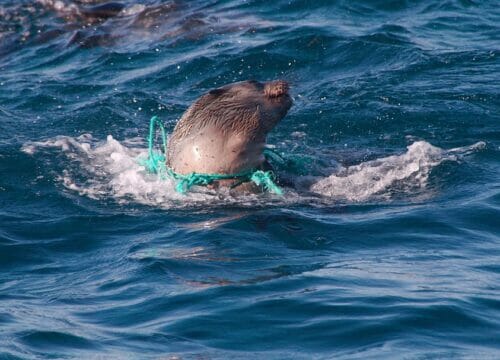
What is being done to tackle plastic pollution?
People and governments all over the world are making great strides in tackling the problem of plastic pollution so that we can continue to do all the wonderful things that we do without harming the environment.
Laws are being introduced to limit plastic consumption. For example, in July 2021 a law was introduced in Europe to ban straws, plastic bottles, coffee cups, and takeaway containers made from certain plastics.
In a similar vein, some places are using financial measures to control plastic consumption. These include shops charging customers for plastic bags or offering discounts on drinks if customers bring their own refillable cups.
People are also dedicating their time to cleaning up our beaches and oceans. This can be by attending beach clean-ups, or by inventing technologies that can help remove plastic from our oceans.
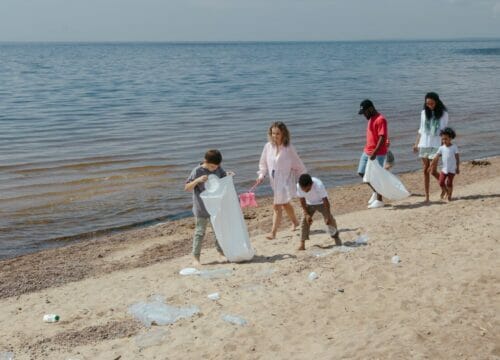
How can people like you help?
The good news is that by making a couple small changes to your lifestyle, you can make a huge difference to the problem of plastic pollution.
You can:
- Change your behaviour so as to use as little plastics as possible. You could: stop buying and using single-use plastics (such as plastic bags, bottles and straws) and find creative ways to avoid using them again. Go the extra mile by encouraging your school to register on the Plastic Clever Schools initiative -helping schools take action against unnecessary plastics.
Join Kids Against Plastic and become part of a supportive community of young people that care for the environment. Support one of the campaigns run by KAP Club members, including Ali’s 1MillionLitterPick campaign and Skye’s KAPtat campaign aiming to cut the amount of cheap plastic toys (tat) in/on children’s comics.
- Volunteer your time at a beach clean-up. Click here to find one near you. Or, if you can’t find a clean-up near you, organise your own!
- Donate money to adopt a marine animal. Read more about adopting an animal with WWF here.
Relevant SDG:
If you’d like to learn more about plastic pollution and its effects, check out the page on UN Sustainable Development Goal 14: Life Below Water.



